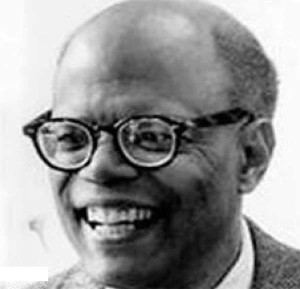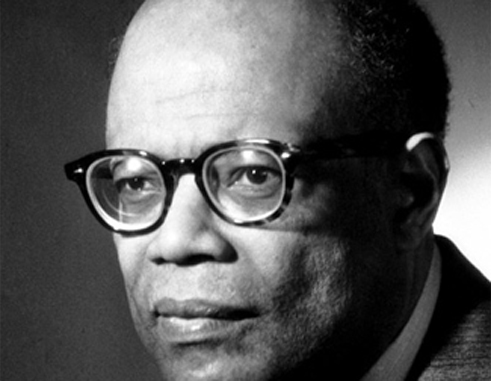‘This creole month, lets us make reflecting on our culture of resistance to oppression a central theme and shamelessly share Sir Arthur’s 1938 observations of social stratification and its impact.”
THIS month, once again, we celebrate the rich creole heritage handed down to us by brave generations before us who resisted many attempts to suppress the use of creole in the colonial era.
In celebration, many of our festivities have rightfully emphasised the vitality of the creole language, the music, dance and food, but it would be a mistake if we continue to ignore the culture of overcoming oppression through resistance, upon which our culture is built.
For as the National Housing Corporation (NHC) finally bulldozed the La Clery CDC community out of history, one thing has become clear: we now live in the worst of times; a time when the weak and marginalised are so destitute, government can ignore basic democratic rights without fear of retribution or social upheaval. It is as if the contented majority no longer cherish the democratic values that secure the opportunities they enjoy today.
Frequently we hear that government should be for and by the people. But how often has this mantra been betrayed? When communities can be “bulldozed” out of history, without public pronouncements about the plight of the residence and their families, we know, we are at a stage where the silence of good men and women, is allowing “evil to strive”. As if we are now paying the price of failing to preserve our traditions of resistance to oppression.
For example, today, when ‘evil’ takes over our communities either in the form of gang violence or callous political decision making, our tendency is for self preservation. After all, now we have mostly been conditioned, to “mind our business” and are constantly being reminded, that what is happening is “just human nature” on talk shows and social media, where ignorance is constantly being peddled as truth.

Luckily, eighty years ago Sir Arthur Lewis described in detail the achievements, through resistance to oppression and political activism, of the brave generation on whose shoulders we ought to stand today.
In his book ‘Labour in the West Indies’ (1938) Sir Arthur, details the techniques of oppression used by a small white elite against the weak and marginalised African communities in Saint Lucia and other Caribbean islands.
And creole heritage month cannot be complete without some reflections on the achievement of that generation. For, if we are to be true to cultural heritage, we ought always to remind ourselves of the techniques that were used to keep them in poverty and the method of resistance and organisation they used to achieve a measure of prosperity.
So, this creole month, lets us make reflecting on our culture of resistance to oppression a central theme and shamelessly share Sir Arthur’s 1938 observations of social stratification and its impact.
A reading of Lewis (1938) today reminds us, that our communities can easily become divided between those who have and those who have not, to blunt the edge collective political actions. And oppression sustained through ill connived “common sense” like prevalence of the political attitude of “white supremacy” amongst some of those who were fortunate to be regarded as being “successful” at that time.
But the significance of Sir Arthur’s analysis is in his description of the effects. For, according to him, “such persons do their best to cut themselves off from all contact with the masses; become often more reactionary than the whites; and in positions of authority often act with a harshness which makes many West Indians prefer a white master to black”.
And, as now, Sir Arthur saw this disunity as having “the most unfortunate result. It means, on the one hand, that the Government can always find coloured men willing to do its most dirty work; and on the other hand, that there are many who refuse to associate themselves even with the most praiseworthy official enterprise”. In many respects, this attitude now manifests itself in our political culture of “red” verses “yellow”.
Sir Arthur also noted the consequences of this political culture – “victimization”. He wrote that “in a small community where everybody knows what everybody else is doing and saying, it is easy for employers [the government included] to keep each other informed of the names of ‘troublesome’ workers. Many a discharged worker was not only unable to get work with any other employer, but also forced to give up at short notice the house or land which they may have been renting. It is this easy victimization which is the main obstacle to the growth of the unions” and in our time meaningful social and economic development.
Yet, Sir Arthur saw political action by those who were visionary and courageous enough to face these obstacles as the true champions of that era. For him, their achievements were through political action, for, as he puts it, “on the political front nothing short of a revolution” occurred during that period.
As a result, the government of the time appointed a Royal Commission “specially to investigate social conditions” and “to adopt all sort of measures to meet the grievances of the workers – land settlement, fixing minimum wages, expenditure on public works and slum clearance, old age pension, enactment of workmen’s compensation etc. This is indeed a revolution for hitherto West Indian Governments have not regarded measures of this sort as of primary importance. But even more important than all this is the fact that the working classes have become organized politically, and that their interests have been forced into the foreground”.
For me, these lessons are still relevant today because, I believe that in our time we need to rekindle the culture of activism specially — a culture of community activism to preserve government for and by the people.
The challenges we face are many, but we must never give up on our democratic values. They have served us well and now we need to revive them to inspire our communities as they go through this turbulent time — for, if anything, the true value of culture is in its ability to inspire social and political change in times like these.
(Sam Bowers is a social entrepreneur and community organiser. He currently serves as Executive Director of the Tafari Charlemagne Community Housing Association.)














